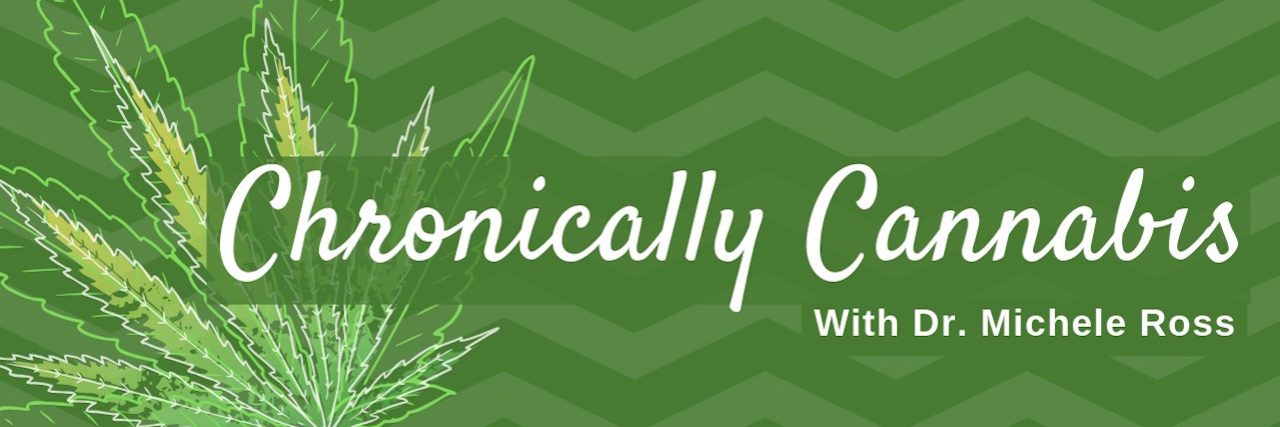Chronically Cannabis With Dr. Michele Ross: How Do I Try Cannabis If It's Not Legal?
In Chronically Cannabis, Dr. Michele Ross, a neuroscientist and cannabis expert, answers the Mighty community’s questions about treating chronic pain with cannabis.
Editor's Note
Medical cannabis is not yet legal in all 50 states. But in this column, Dr. Michele Ross reveals how you can still legally utilize some of the benefits of cannabis in the U.S.
Please see a doctor before starting or stopping a medication.
The Mighty community asked: “What can I do if I’m in the U.S. and want to try cannabis, but it’s not legal in my state?”
CBD is basically legal in all 50 states. There are some states that have very specific rules because they don’t want you to have CBD oil with 0.3% or less THC in it, but most states have no issue with hemp oil that contains only CBD. It’s a little less effective than using it with THC but you can increase the dosage. It’s going to be a little more costly for you but it’s the only option you have.
The nice part about CBD is it actually enhances the effectiveness of some opioids. So it actually works with the medications you’re on. If you live in a state where THC is not legal, you’re most likely not going to be able to completely go off your medications, but you can use CBD to make your medication more effective, which might be able to help you reduce your dosage. No matter where you live, you can use CBD topical creams which are going to relieve your pain and can even be found at your local pharmacy.
That’s what I love about these cannabinoids, they’re actually treating the cause of your health problems. It’s not masking it like opioids, which don’t treat your actual health condition. Whereas, over time, with cannabinoids, you’re going to see short-term benefits and also long-term benefits. Don’t get distressed, CBD does work. It’s just not the extra strength version that you’re going to see with THC in the mix.
I travel all over the country and sometimes I’m allowed to bring my products with CBD and 0.3% THC when I go to a legal state and sometimes I’m not. If not, I’ll use CBD-only products, and increase the dosage. That’s all you have to do. If you are in a THC-illegal state make sure you use the amount of CBD that’s effective for treating your condition. Many patients under-dose CBD.
Glossary of Terms
Cannabis: Also known as marijuana, weed and pot, cannabis is a plant that can be eaten, brewed, smoked and vaporized. Its oils can also be extracted and consumed, or incorporated into topical creams. Cannabis is consumed for its psychoactive and pain-relieving properties. It is currently a Schedule 1 drug in the United States and is illegal at the federal level, but is legal for recreational and/or medical use in 33 states.
THC: Abbreviation for tetrahydrocannbinol, one of the compounds, or “cannabinoids,” found in cannabis. It is responsible for the plant’s psychoactive effects, since it binds to cannabinoid receptors in the brain responsible for pleasure and pain.
CBD: Abbreviation for cannabidioil, another cannabinoid found in cannabis. CBD is non-psychoactive and, unlike THC which binds to cannabinoid receptors, stimulates the body’s own endocannabinoid system. This can lead to physical benefits like reducing pain and lowering inflammation.
Endocannabinoids: Neurotransmitters produced by the body that bind to cannabinoid receptors. Endocannabinoids help control functions like pain and inflammation and maintaining homeostasis in the body.
Strain: A variation of cannabis that has been bred to enhance certain characteristics and compounds.
Terpenes: Aromatic oils secreted by the cannabis plant, which give its particular strain unique flavors and scents. Over 100 types have been identified. Terpenes also interact with other cannabis compounds to produce various physical and psychoactive effects.
Indica: A type of cannabis plant characterized by short stature and broad leaves, which grows better in a colder climate. Previously believed to offer relaxing and pain relieving-benefits, it’s now understood to offer similar benefits as other cannabis varieties.
Sativa: A type of cannabis plant characterized by its tall height and narrow leaves, which grows better in warmer climates. Previously believed to offer invigorating, energetic benefits, it’s now understood to offer similar benefits as other cannabis varieties.

